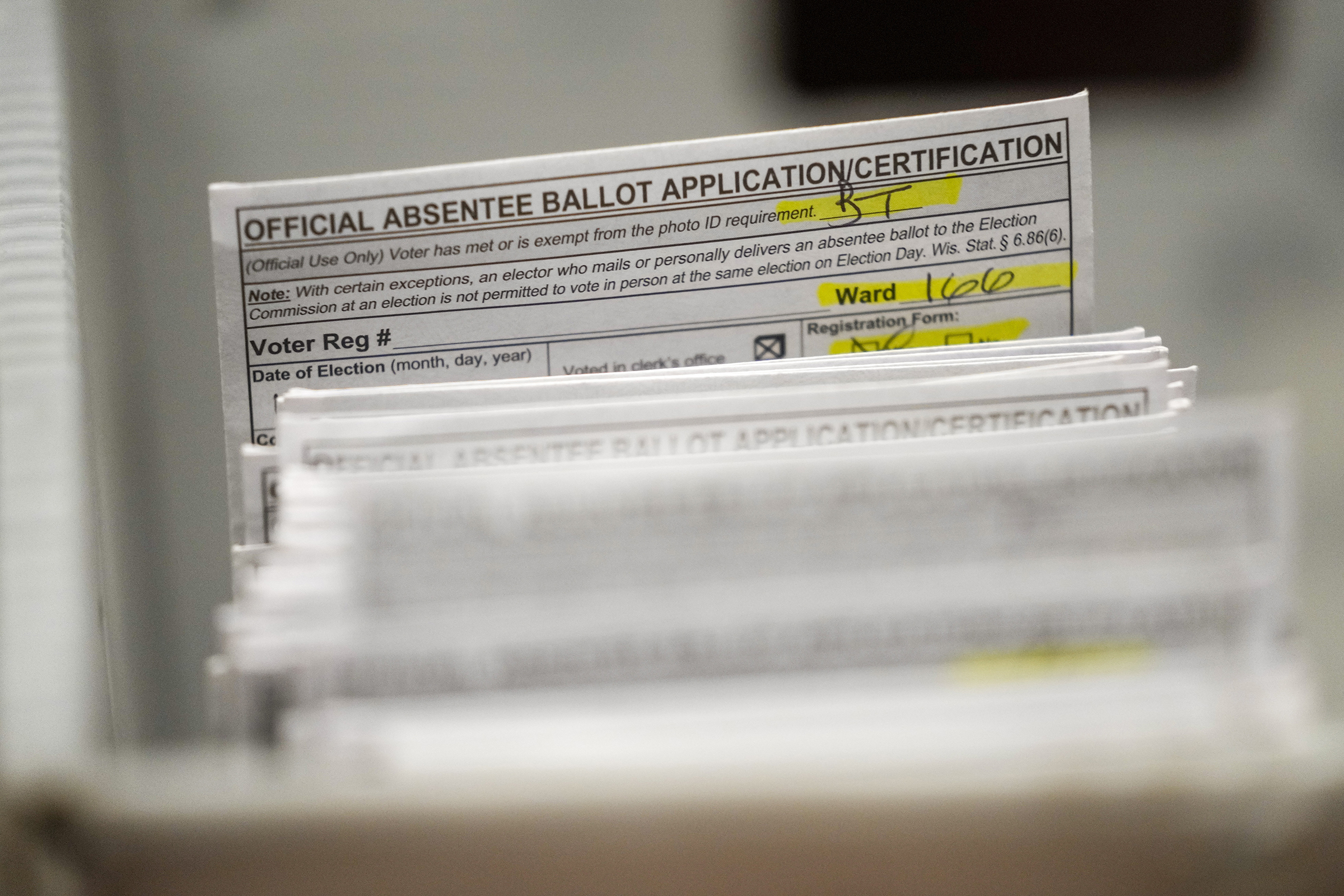A Dane County judge could decide as early as Tuesday whether to allow voters with disabilities to receive and mark their ballots electronically from home.
The Wisconsin Disability Rights Association, the League of Women Voters of Wisconsin and four voters with disabilities filed the initial lawsuit against the Wisconsin Elections Commission in April.
Before Monday’s hearing, the plaintiffs narrowed the scope of their lawsuit to apply first to absentee ballots for the November election, but not to the August primary, for which ballots have already been drawn up.
Get the latest news
Sign up for WPR’s email newsletter.
The injunction the plaintiffs are seeking defines a print-impaired voter as “a disability, such as blindness or a physical impairment that impairs manual dexterity, that prevents the voter from independently reading or completing a paper absentee ballot.”
The bill requires that a screen reader be used to allow voters to receive, read, and complete their ballot. It does not require that completed absentee ballots be returned electronically.
In Wisconsin, deployed military members and those living overseas already have the ability to receive their ballots by mail or online, and the lawsuit asks the court to allow that same access for voters with disabilities to comply with state and federal laws that guarantee equal access and accommodation.
Attorney Erin Deeley argued that the U.S. Constitution guarantees the right to vote in secret and privacy.
“And there is good reason for this right: it safeguards our democracy and eliminates the risks of intimidation, ridicule, bribery and other corrupt and anti-democratic pressures,” she said.
Deeley said one of the plaintiffs, Stacey Ellingen of Oshkosh, relies on caregivers to meet her basic needs. Because of the caregiver shortage, Deeley said Ellingen often doesn’t know her caregivers well.
“Voters should not have to explain why they want the right to a secret ballot upheld, but Ellingen understandably does not want to reveal her vote to her caregiver and cannot sacrifice her caregiving for fear of political disagreement,” Deely said.
According to the WEC, ballots are not returned electronically in Wisconsin.
Military personnel and those living permanently overseas can download their ballot from an online portal or have their ballot mailed to them by their local city clerk. Those temporarily living overseas can receive their ballot by mail.
Lawyers for the commission said not all clerks have access to the technology that would allow them to mark ballots electronically.
WEC Administrator Megan Wolf testified that it would take three months to develop, approve and train the roughly 2,000 county and city clerks.
Lawyers for the elections board said ballots for the November election need to be approved by the end of August, arguing that’s not enough time to implement the changes sought in the lawsuit.
Assistant Attorney General Carla Keckhaver said voters with disabilities already have the right to a secret ballot.
“When a voter uses an aide, their vote is shared secretly with one person, and if that aide reveals their vote to anyone, they are subject to criminal penalties,” Carcover said.
“Voters are not required to vote in public or to make their vote public. This is in contrast to a secret ballot,” she continued. “They are simply casting a secret ballot with assistance.”
According to the lawsuit, local governments in Wisconsin distributed electronic absentee ballots to anyone who wanted one until a 2011 law limited that option to only deployed military members and those permanently overseas.
A federal judge found the law violated the First and Fourteenth Amendments to the Constitution, but the decision was overturned on appeal. The lawsuit argues that the ruling “failed to specifically address the unequal treatment and burdens faced by Wisconsin voters with disabilities.”
In 2022, the Board of Elections resolved to tell local clerks that they must allow voters with disabilities to ask others for help returning their absentee ballots.
Absentee voting has been a contentious issue in the state, where four of the last six presidential elections have been decided by less than 1 percentage point, and the Wisconsin Supreme Court is reviewing a ruling that restricted the use of absentee ballot drop boxes.
According to the Centers for Disease Control and Prevention, people with disabilities make up about 23 percent of Wisconsin’s population.
Wisconsin Public Radio, © Copyright 2024, University of Wisconsin System Board of Regents and Wisconsin Educational Communications Commission.

